What Hi-Fi? Verdict
While all of the attention might be on the G2 and its QD-OLED rivals, the C2 is still the performance-per-pound champ
Pros
- +
Bright and punchy but natural picture
- +
Unbeatable gaming specs
- +
Engaging sound
Cons
- -
The best OLEDs are brighter
- -
Slight bass rattle
Why you can trust What Hi-Fi?
While there are certainly reasons that you might want to opt for a rival, LG's OLEDs have been the go-to premium TV of choice for most people for years now. That means there's huge anticipation for each year's new models – particularly those in the C-series, which have typically been the sweet spot between performance, features and price.
That said, last year saw a picture quality gap emerge between the C-series and the brighter G-series. There’s a gap this year, too; this year’s C2 has the ‘Brightness Booster’ technology of last year’s G1, while the new G2 takes things to ‘Brightness Booster Max’ levels.
Having put both the G2 and C2 through their paces, we’re happy to proclaim that while the G2 certainly justifies its position at the top of LG’s 2022 OLED range, the C2 is still the model that most people should buy.
Price
The official launch price of the 65-inch LG C2 is £2699 / $2500 / AU$4495. That makes it a bit more expensive in the UK than the C1 was when it launched, but that’s not the case for the US or Australia. Thankfully, UK pricing already seems to be dropping and, at the time of writing, you can buy an OLED65C2 for £2499, though it’s not clear yet whether that’s an official, long-term price adjustment.
The price difference between the C2 and G2 is pronounced, with the latter currently available for £3299 / $3000 / AU$5295, and the big question is, as ever, whether the C-series or G-series model is the better buy.
In terms of non-LG modes, the C2 needs to prove itself against the Sony A80K (£2899 / $2500 / AU$TBC) and, in all likelihood (in Europe at least), the Philips 65OLED807, which is set to arrive later in the year.
Design
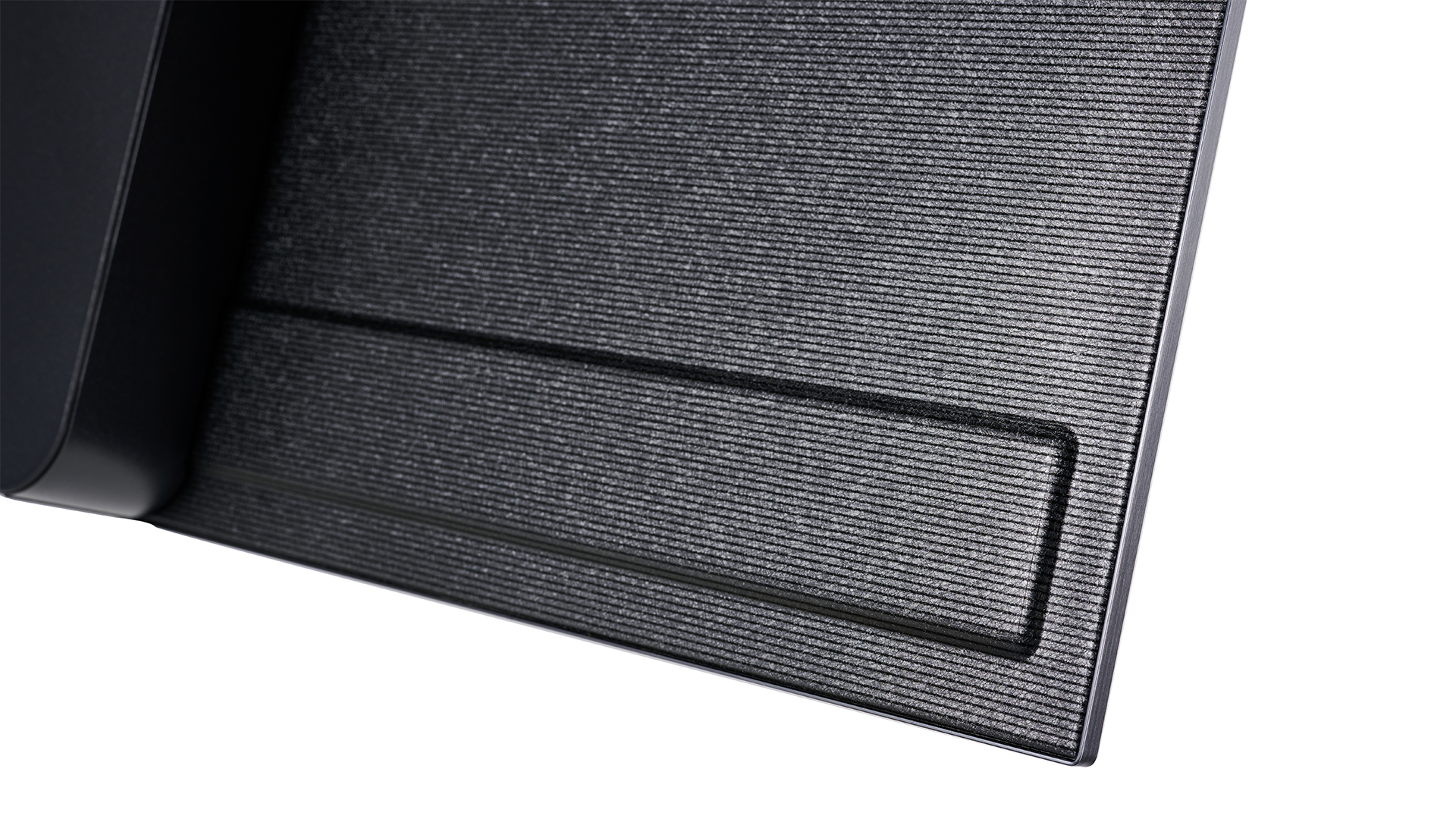
LG's C-series OLEDs have barely changed in appearance since the C9 was introduced in 2019, so it's good to see at least some changes being made for the C2. Most welcome is the move from an elegant but very wide and low stand to a pedestal that's significantly narrower (good for placement on furniture) and a little taller (good for leaving room for a soundbar).
Aside from the stand, the design is very much the same as before, albeit with a couple of millimetres shaved off the overall depth and width measurements, the latter due to even thinner bezels than before.
One other thing to note is that LG has been on a serious weight reduction regime and the C2 is vastly lighter than 2021’s C1. The 65-inch C2 we're testing, with stand, weighs just 16.5kg, whereas the equivalent C1 weighs 32.6kg – roughly double. Without the stand, the C2’s weight drops to 14.8kg, which will stress the wall to which it’s mounted far less than the 24kg C1.
Features
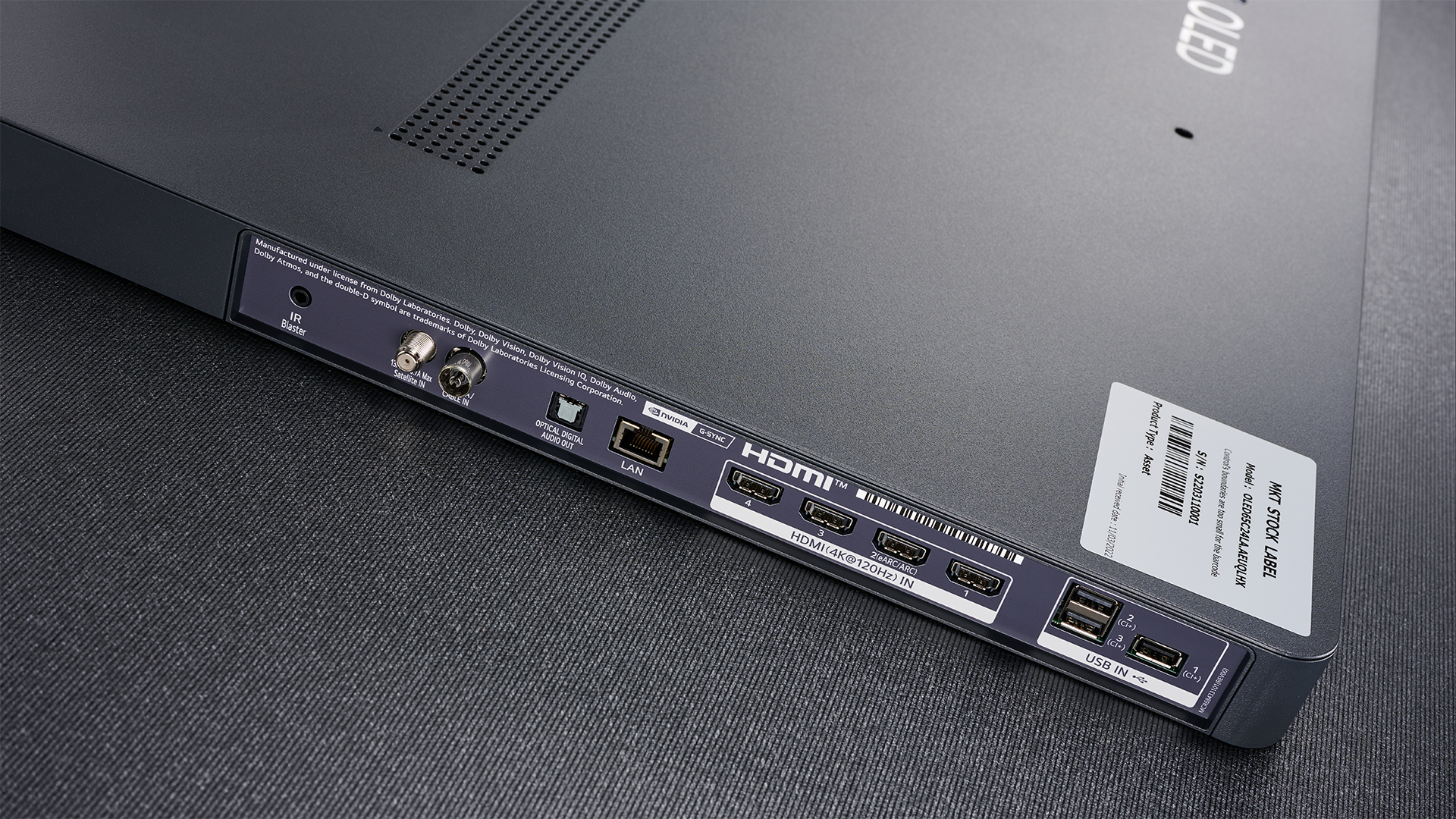
The big news is that, unlike its predecessor, the C2 is designated as an ‘OLED Evo’ model, which means it uses the latest, brightest OLED panel technology. Roughly speaking, this is the panel technology previously seen in last year’s excellent G1, but it’s not up there with the new G2, which adds a heatsink that allows the panel to be pushed even brighter. In LG parlance, the C2 has Brightness Booster while the G2 has Brightness Booster Max. Do bear in mind that while OLED picture quality typically scales up and down very consistently, the 42-inch and 48-inch versions of the C2 aren’t as bright as their larger siblings.
The feature sets of the C2 and G2 are otherwise largely identical. Both are powered by the new Alpha 9 Gen 5 processor. This doesn't appear to be a huge upgrade on last year's Alpha 9 Gen 4, but AI upscaling has been modified to improve its efficiency, removing a step that could potentially add unwanted artefacts, while a new Dynamic Tone-mapping Pro Algorithm subdivides the screen into more discrete areas (by an order of 10) for more granular enhancement.
Object Background Enhancement also gains a Dynamic Vivid Mode that can better differentiate foreground and background, analysing them separately, which LG says creates a greater depth of field.
The new processor also brings with it an upgrade in the sound department, with soundtracks now being upmixed into 7.1.2 virtual channels, rather than the 5.1.2 of before.
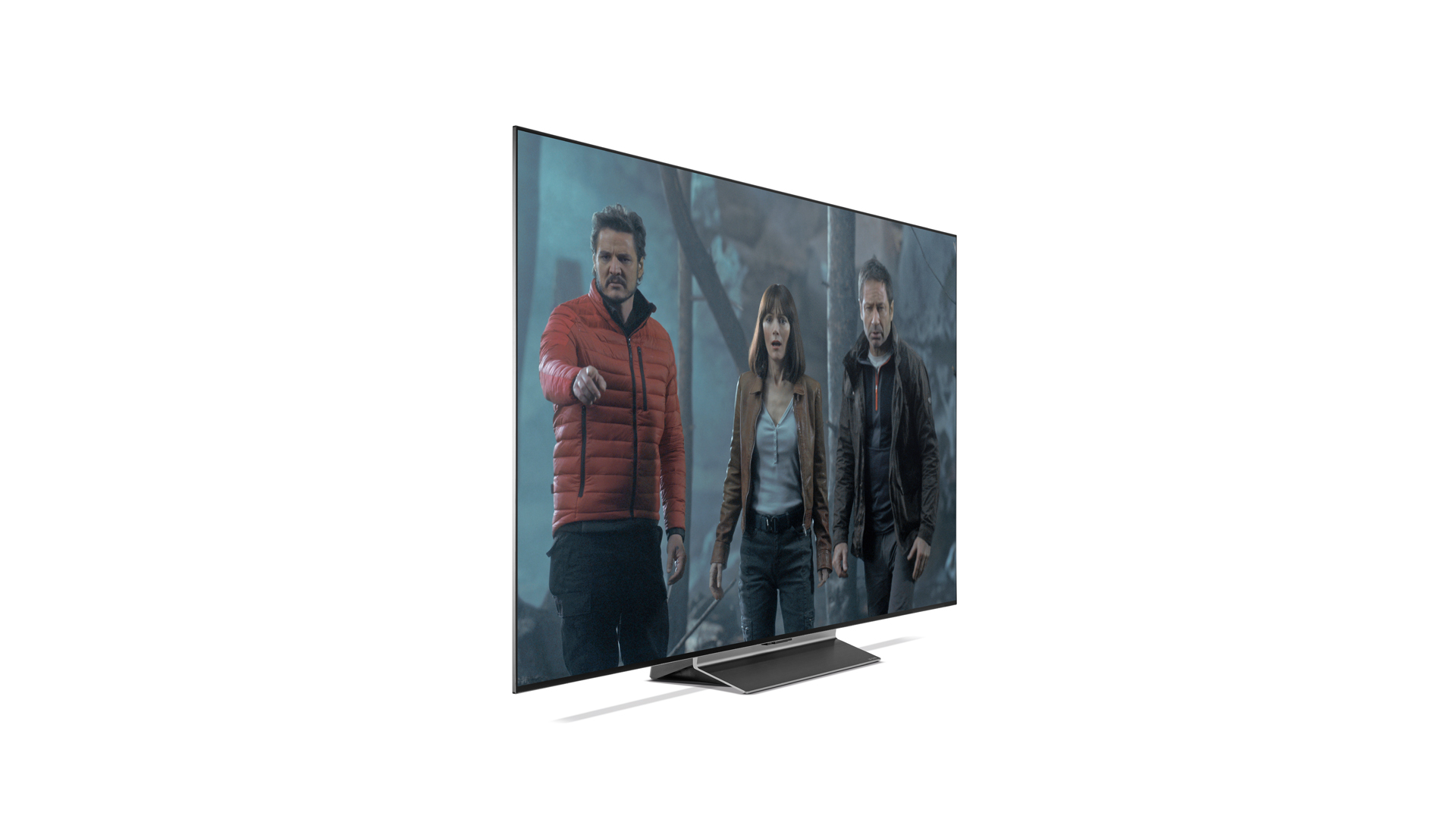
Screen size 65 inches (also available in 42in, 48in, 55in, 77in, 83in)
Type OLED
Resolution 4K
HDR formats HDR10, HLG, Dolby Vision (inc. Dolby Vision IQ with Precision Detail)
Operating system webOS 22
HDMI inputs x4, all 2.1 48Gbps
Gaming features 4K/120, VRR, ALLM, HGiG, Dolby Vision game mode
Input lag 9.4ms
ARC/eARC eARC
Optical output Yes
Dimensions (hwd, without stand) 83 x 144 x 4.5cm
One other very interesting aspect that's apparently enabled by the Alpha 9 Gen 5 is support for Dolby's new Dolby Vision IQ with Precision Detail format. This is essentially a further development of Dolby Vision IQ but, unlike IQ, which is designed to adjust brightness and contrast to deliver a more accurate picture in all lighting conditions, Precision Detail is said to actively adjust the light levels of all parts of the picture in an effort to boost contrast, sharpness and detail. Aside from Dolby Vision, HDR is also supported in the HDR10 and HLG formats. HDR10+ is absent, as it is from every LG TV to date.
On the gaming front, LG hasn't changed much, largely because it hasn't had to. As before, the C2 and G2 both boast four HDMI 2.1 sockets (most models from many rival brands still have just two at most), but this year they've been upgraded from 40gbps to 48gbps. In reality, that currently makes little to no practical difference, seeing as there's no commercially available source that outputs at the 48gbps maximum, but a little bit of extra future-proofing doesn't hurt.
Those HDMI 2.1 sockets do of course support 4K/120 gaming, VRR and ALLM. Also as before, the new C2 and G2 support HGiG for greater HDR accuracy with games, and there's a Dolby Vision Game mode for Xbox Series X/S gamers to take advantage of. Input lag, meanwhile, is supremely low, measuring under 10ms in our test.
LG's 2022 TVs come with the new webOS 22 operating system. It’s not a substantial departure from 2021's webOS 6.0, which somewhat controversially moved from a pop-up row of options to a full-screen interface, but LG has sought to improve personalisation and recommendations, most notably through the addition of discrete user profiles.
Most importantly, webOS 22 supports every streaming service you’re ever likely to need, complete with 4K, Dolby Vision and Dolby Atmos where the services and content carry them.
LG has also taken a leaf out of Samsung's book by introducing an 'Always Ready' mode that can utilise the screen to display weather updates, a clock, art, personal photos or animation when it would otherwise be on standby. The C2 (and G2) have far-field microphones built into their frames, enabling them to respond to voice commands when in standby mode, allowing you to check the weather without turning your TV on.
Picture
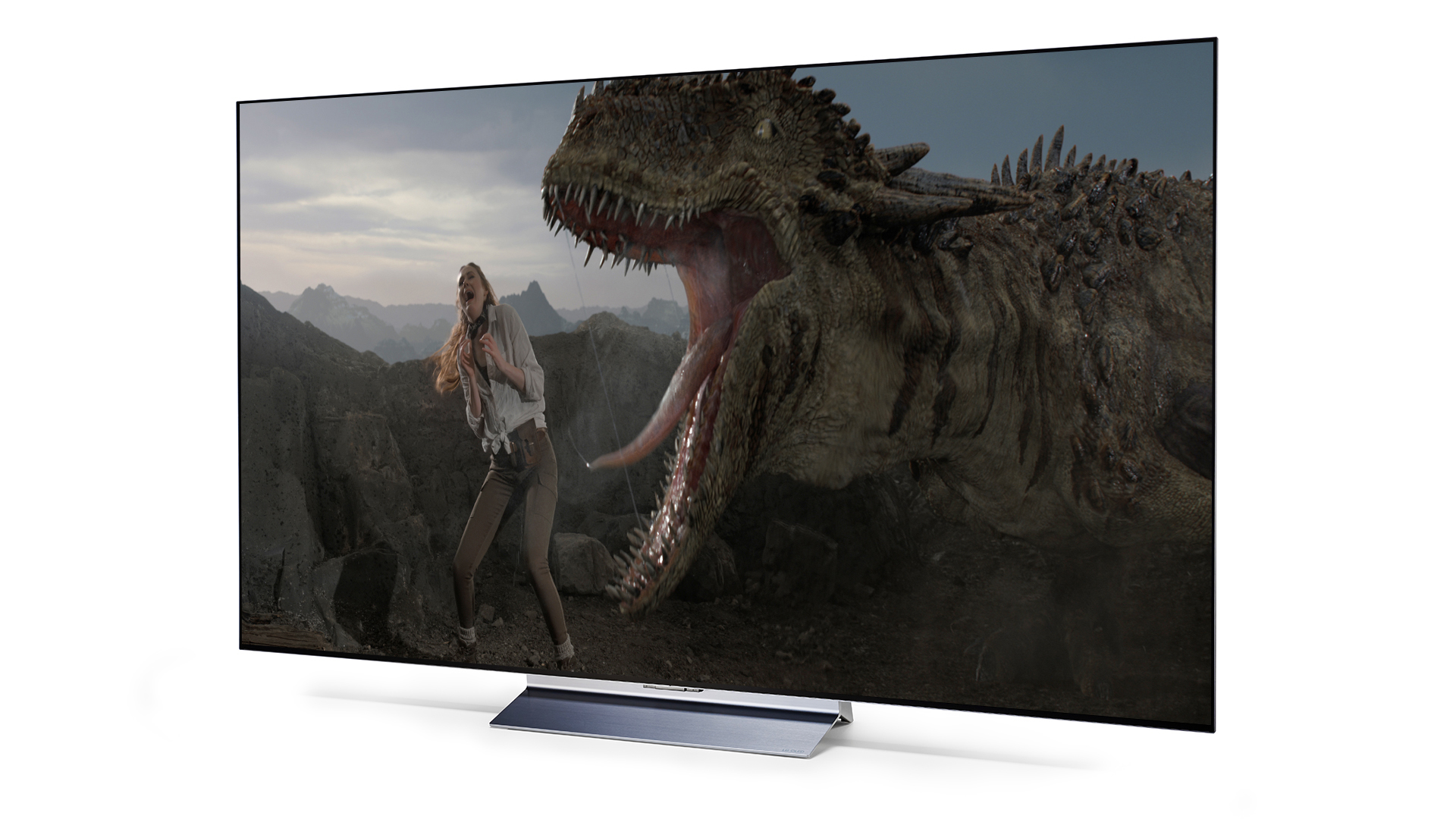
First things first, the C2 is actually even better in picture terms than last year’s excellent G1. The improvements are most noticeable when playing Dolby Vision content, which is clearly brighter on the new C2. There’s noticeably more punch to the whole image, which pops much more effectively, and there’s significantly greater contrast and dark detail. Crucially, there’s no down side, either. There’s nothing artificial to the image – it’s lifted, but naturally, with no detriment to the colours or black depth.
These differences are most pronounced in the Dolby Vision Bright mode, which is the one to use if there’s ambient light in the room or if you simply appreciate the punchier approach (which we do), but the C2 is also the better TV when the even truer Dolby Vision Dark preset is selected, maintaining the authenticity of the image while revealing more shadow detail and providing brighter highlights. Very occasionally it’s possible to see that a tiny bit of fine detail and subtle shading is being washed out by the C2 in the very brightest parts of the image (some clouds for example) but this is otherwise all gain and no pain. As a whole, it’s a noticeably more dynamic and enticing image.
Watching No Time To Die in HDR10, the good news remains. While less obvious than with Dolby Vision content, the C2 is still an even better performer than the G1, with the degree of the upgrades varying somewhat based on the selected preset. In the Standard mode, it can be hard to spot differences between the two sets, but look hard and they’re there – patches of sky seen out of the windows of Madeleine’s icily depressing childhood home at the opening of the film are a smidge brighter, as are the reflections off the Mediterranean Sea in which she’s floating in the following scene.
This second scene is in fact lifted just a touch across the board, though we’re talking fine margins. Detail levels are a little higher, with the C2 digging up even more of Bond’s characterful skin blemishes as he watches Madeleine swim. There’s slightly more cool purity to whites, too, which should appeal to those who favour the sort of neutral colour balance typically offered by a Standard mode.
In Cinema Home, the C2’s brighter approach is more pronounced. As before, the pleasingly rich overall character remains consistent from last year’s G1, but there’s more punch and pop to the new model’s performance.
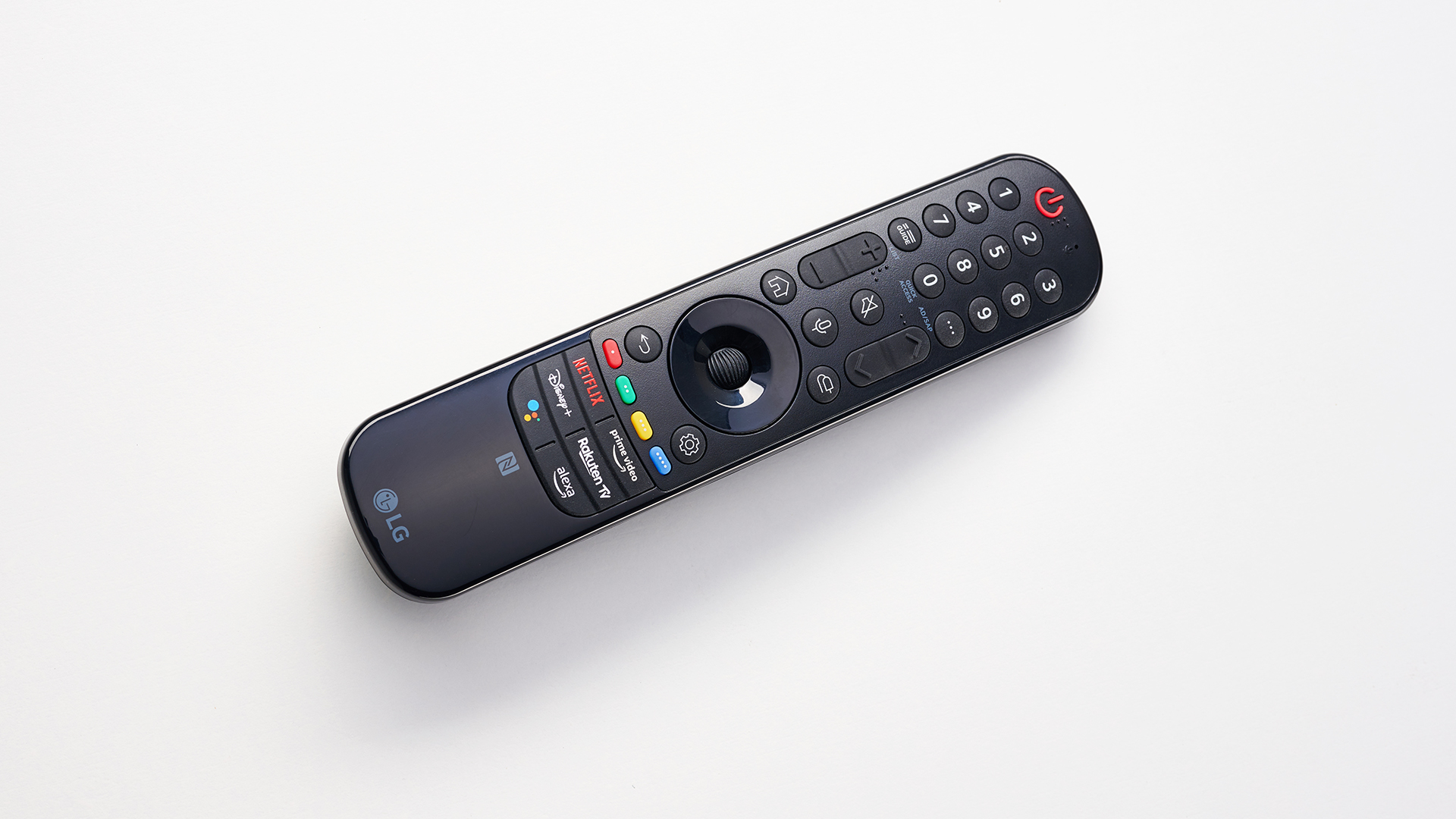
You wouldn’t rush to sell your G1 to buy a C2, but the C2 is undeniably the better picture performer of the two. It’s not just brightness, but contrast – characters and objects stand out from their backgrounds more effectively, which helps you see more of the action and results in greater three-dimensionality.
True purists will be pleased to read that these improvements remain even in Filmmaker Mode. It’s by no means a huge upgrade, but the C2 is definitely brighter, sharper and more contrasty. It’s a great picture made a few percent better.
Interestingly, with SDR content the C2 and G1 are much closer in terms of brightness, with the older G1 actually proving to be the brighter of the two across all picture presets, though by a very slim margin. The C2 still produces the better picture overall though, upscaling both 1080p and standard-def material with greater control and image cleanliness. Playing The Gentlemen in HD via Netflix, the image is a little sharper and more detailed than the one provided by the G1, and dropping to Pointless in SD only exaggerates the upscaling upgrade that LG has managed for 2022.
So where does this place the LG C2 in the broader TV landscape? Well it’s not quite as good as the G2, which essentially provides the same picture performance but with even more pop. The Sony A95K QD-OLED is better still, broadly matching the G2 for punch but adding even greater colour reproduction, particularly in the brightest parts of the image. The C2 is significantly more affordable than these flagship sets, though, and on a performance-per-pound basis is almost impossible to fault, particularly in terms of its picture.
Sound
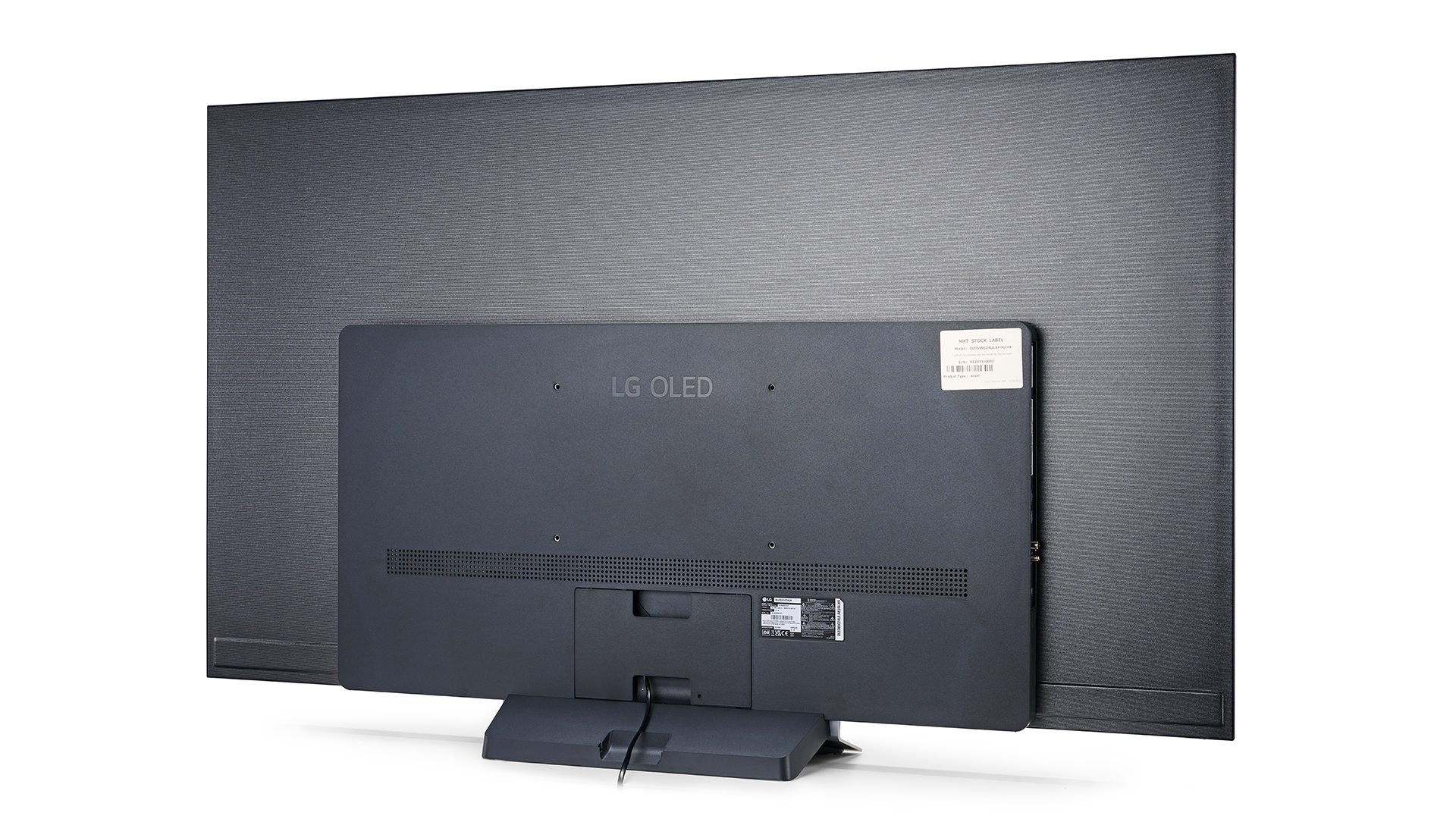
LG has slightly struggled to strike the right balance with the sound of its C-series TVs but the C2, while still not perfect, is certainly a step in the right direction.
Last year’s sets were smooth but bland, and the C2’s punchier, more attacking delivery is a definite improvement. It makes the TV a more engaging and exciting listen. Unfortunately, there’s a slight rattle from the speaker cabinet when the set is challenged by the loud bassy thumps at the opening of Blade Runner 2049 and during the flight into LA at the start of the second chapter. This is far less pronounced than it was with 2020’s CX TV, but it’s an issue that 2021’s C1 didn’t have, suggesting LG is yet to find equilibrium between excitement and easy listening.
That said, the C2 is still a sonic upgrade on last year’s LG OLEDs, providing a more authentic sound with better projected voices. It’s generally smoother and cleaner but with more punch and dynamism than before, and there’s more weight, too, but with convincing integration with the rest of the delivery rather than a lump of bass that emerges from nowhere as it does with many TVs.
Ultimately, there are very few TVs that wouldn’t be improved by a simple soundbar, but the C2, while decent-sounding, is more easily upgraded than might be expected of a TV costing as much as it does.
Verdict
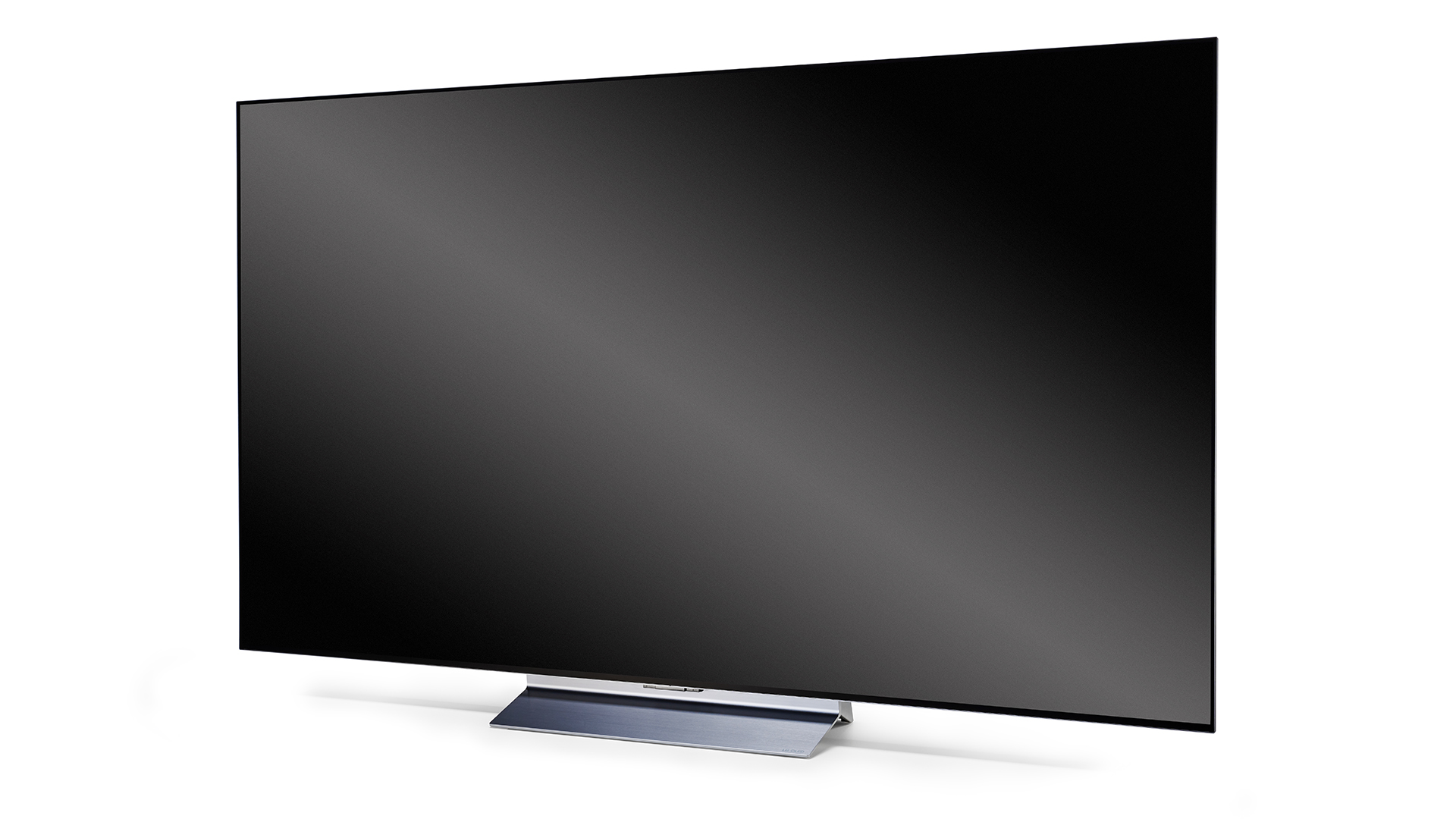
The LG G1 was one of last year’s very best and most desirable TVs, and the C2 is better and more affordable.
Those with seriously discerning tastes and the budget with which to satisfy them will find it worth levelling up to the G2 or Sony’s A95K, but the C2 is the performance-per-pound champ of 2022 – at least until we see the Sony A80K and Philips OLED807…
SCORES
- Picture 5
- Sound 4
- Features 5
MORE:
See all the What Hi-Fi? Awards 2022 winners
Read our LG OLED65G2 review
And don't forget our Sony XR-55A95K review
Our pick of the best 65-inch TVs 2022
Tom Parsons has been writing about TV, AV and hi-fi products (not to mention plenty of other 'gadgets' and even cars) for over 15 years. He began his career as What Hi-Fi?'s Staff Writer and is now the TV and AV Editor. In between, he worked as Reviews Editor and then Deputy Editor at Stuff, and over the years has had his work featured in publications such as T3, The Telegraph and Louder. He's also appeared on BBC News, BBC World Service, BBC Radio 4 and Sky Swipe. In his spare time Tom is a runner and gamer.
- John ArcherFreelance contributor
-
Bloke Almost all the comparisons are with the G1 rather than its direct predecessor the C1. Why is this I wonder? Could it be because the C1 is HALF the price of the C2 across most of Europe? I checked, compared the two and concluded that the C2 is not even remotely worth the extra, so I went for the C1 + Sonos Arc for less than the C2.Reply -
manicm ReplyBloke said:Almost all the comparisons are with the G1 rather than its direct predecessor the C1. Why is this I wonder? Could it be because the C1 is HALF the price of the C2 across most of Europe? I checked, compared the two and concluded that the C2 is not even remotely worth the extra, so I went for the C1 + Sonos Arc for less than the C2.
I see what you're saying, but if you read the review again WHF says the C2 is a better TV than last year's still more expensive G1. So in that respect it's still good value.
And, like you, for the rest of us there is still the more affordable C1. -
Bloke I appreciate your post but it misses my point. There shouldn't be any comparisons with the G1 at all. In other words, it's a strawman. Yes, it may be better than the G1 and that's good progress for sure, but in the real world with crazy utility bills and petrol etc, it simply can't come close to justifying the premium we're currently seeing between the C1 & C2. I say this purely as a value proposition, as I'm lucky enough to be able to afford either model.Reply
The latest gen. VW Golf for instance wouldn't suddenly get compared to last years VW Passat, even if it bettered it in some ways. -
GSV Ethics Gradient Seems a valid comparison to me - the sets are the same size, unlike different models in VW's range. The question as to whether the extra outlay is warranted is one I think it's worth asking.Reply -
DougM ReplyBloke said:I appreciate your post but it misses my point. There shouldn't be any comparisons with the G1 at all. In other words, it's a strawman. Yes, it may be better than the G1 and that's good progress for sure, but in the real world with crazy utility bills and petrol etc, it simply can't come close to justifying the premium we're currently seeing between the C1 & C2. I say this purely as a value proposition, as I'm lucky enough to be able to afford either model.
The latest gen. VW Golf for instance wouldn't suddenly get compared to last years VW Passat, even if it bettered it in some ways.
I think the point is:
I'm going to spend $2500 on a TV. Will I get the best picture out of C2 or G1 at that price? Answer: C2.
Could I get an inferior picture from C1 for less? Yes.
Coudl I get a superior picture from G2 for more? Yes. -
Bloke Reply
If you buy gear based on a pricepoint, then yes, absolutely.DougM said:I think the point is:
I'm going to spend $2500 on a TV. Will I get the best picture out of C2 or G1 at that price? Answer: C2.
Could I get an inferior picture from C1 for less? Yes.
Coudl I get a superior picture from G2 for more? Yes.
If you buy gear based on performance ballparks, not really, IMHO.
That's why the Chord Mojo was so popular. Is the Hugo better? Yes. Enough to overcome the diminishing returns? No.
I'm not criticising WHF for pursuing best performance, just so long as it's relative to value. Let Hifi News and Hifi Plus push the cost-no-object narrative.
